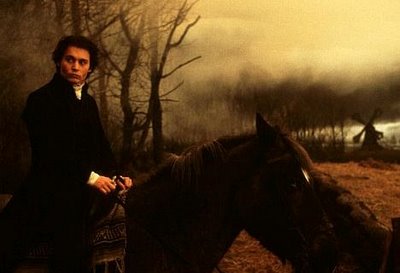Note: I wrote the below almost exactly two years ago, on an earlier incantation of this blog. It will always hold true, and it is one of my favorite posts. Yet two years later I live in a place that does not experience dramatic seasonal differences.
If you live in a place that does, however, I offer the below as a timely thought for pleasure. As for me, I do miss fall. But seasons in California, are something. More on that, later.
 If you’re a fan of creatures and you live in a place that experiences winter—I mean real, lifeless, snowy abyss kind of winter—now is about the time of year when it starts to hit you that you’d better say your goodbyes. There is no better symbol of this time of year than the ambience of the Halloween holiday. For animals, the ominous stench of death is in the air. Plant food sources are going dormant, the night air freezes, and the most one can hope is that he has sufficiently fattened himself up in his previous months of (relatively) carefree existence.
If you’re a fan of creatures and you live in a place that experiences winter—I mean real, lifeless, snowy abyss kind of winter—now is about the time of year when it starts to hit you that you’d better say your goodbyes. There is no better symbol of this time of year than the ambience of the Halloween holiday. For animals, the ominous stench of death is in the air. Plant food sources are going dormant, the night air freezes, and the most one can hope is that he has sufficiently fattened himself up in his previous months of (relatively) carefree existence.The cloud of death sends amphibians scurrying for shelter under rocks, logs, and underground burrows. Some insects and spiders spin themselves in silken cocoons, perhaps desperately clinging to the belief that they are constructing insulation, not their coffins. Other insects simply give up, sitting patiently while the cloud of death descends upon them, assured by the sight of their eggs (which will weather the storm) that their existence till now has not been in vain.
I don’t here wish to be down on autumn or such “Halloween ambience”—the fact is, I love this time of year. (Along with spring, summer, and winter, autumn is my favorite season.) It’s hard not to love the thrill of the eeriness that accompanies the impending dormancy of life, since we all know that we don’t have to take it seriously—spring will come again.